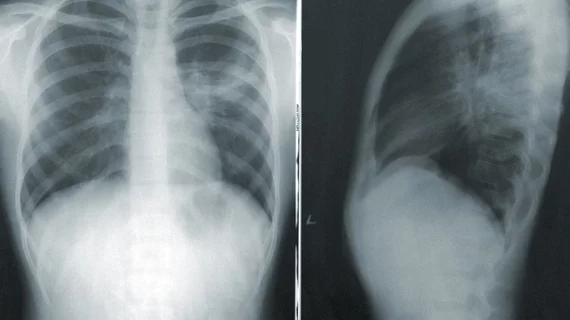Open-access AI invites refinement of COVID-19 diagnosis
Researchers at the University of Waterloo in Ontario have introduced a convolutional neural network for diagnosing COVID-19 on chest X-rays.
Other research teams have announced similar AI tools in recent weeks, but this one is publicly available to AI developers who wish to explore, improve or otherwise noodle around with its inner workings.
Called COVID-Net, the network was developed by Alexander Wong, P.Eng, PhD, who is also co-founder and chief scientist of the Canadian AI company DarwinAI, and Linda Wang, a U of Waterloo graduate student researcher.
They trained the system on 5,941 chest radiographs acquired from 2,839 patients whose imaging data is available in two open-access data repositories. They’re calling the resulting dataset COVIDx.
The researchers’ initial results showed the system “strikes a good balance between accuracy and computational complexity,” as it achieved 83.5% test accuracy on the 2.26 billion decisions it needed to make its diagnostic predictions.
In their discussion section, the authors underscore that the system is not ready for prime time—hence the decision to open-source it.
Their stated hope is that “the promising results achieved by COVID-Net on the COVIDx test dataset, along with the fact that it is available in open-source format alongside the description on constructing the open source dataset, will lead it to be leveraged and built upon by both researchers and citizen data scientists alike.”
They add that their aim is to “accelerate the development of highly accurate yet practical deep-learning solutions for detecting COVID-19 cases from chest radiography images” while also speeding treatment to patients.
Importantly, Wong and Wang note their use of an explainable AI method, which yields transparency and so may ward off clinicians’ wariness of “black box” computing.
Their research report is available in full for free.

